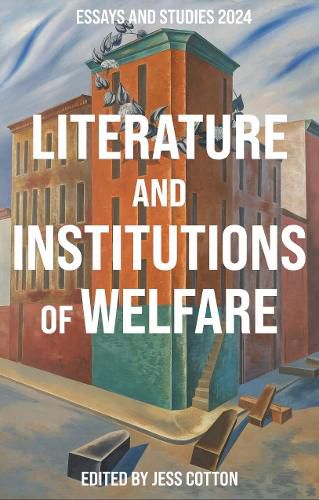Readings Newsletter
Become a Readings Member to make your shopping experience even easier.
Sign in or sign up for free!
You’re not far away from qualifying for FREE standard shipping within Australia
You’ve qualified for FREE standard shipping within Australia
The cart is loading…






Perspectives on the ways in which welfarist ideology has underpinned the teaching, reading and production of literature from the 1930s to the present.
The welfare state in Britain established a new level of access to literature as a public good alongside other national resources that were grounded in a principle of democratic egalitarianism: the National Health Service, secondary education, promises of full employment and new housing structures. This volume charts the impact of the founding of the welfare state on the teaching, reading and production of literature, and the legacy of this social democratic vision of literature, from the 1930s to the present day; it is especially concerned with the representational possibilities, the social arrangements and political claims that welfare makes possible. Individual contributions consider the ways in which the history of literature is related to the history of welfare; and how it shaped the literary culture that emerged during these years; and how literature has communicated the value and character of the welfare state, moving, like the literature they examine, between a disenchantment with the institutions of welfare and an urgent need to articulate welfare's vision of social repair. Amongst the particular authors discussed are Raymond Williams, T.S. Eliot and Caryl Phillips, as well as an evaluation of the publisher Virago's contribution to the women's movement.
$9.00 standard shipping within Australia
FREE standard shipping within Australia for orders over $100.00
Express & International shipping calculated at checkout
Perspectives on the ways in which welfarist ideology has underpinned the teaching, reading and production of literature from the 1930s to the present.
The welfare state in Britain established a new level of access to literature as a public good alongside other national resources that were grounded in a principle of democratic egalitarianism: the National Health Service, secondary education, promises of full employment and new housing structures. This volume charts the impact of the founding of the welfare state on the teaching, reading and production of literature, and the legacy of this social democratic vision of literature, from the 1930s to the present day; it is especially concerned with the representational possibilities, the social arrangements and political claims that welfare makes possible. Individual contributions consider the ways in which the history of literature is related to the history of welfare; and how it shaped the literary culture that emerged during these years; and how literature has communicated the value and character of the welfare state, moving, like the literature they examine, between a disenchantment with the institutions of welfare and an urgent need to articulate welfare's vision of social repair. Amongst the particular authors discussed are Raymond Williams, T.S. Eliot and Caryl Phillips, as well as an evaluation of the publisher Virago's contribution to the women's movement.